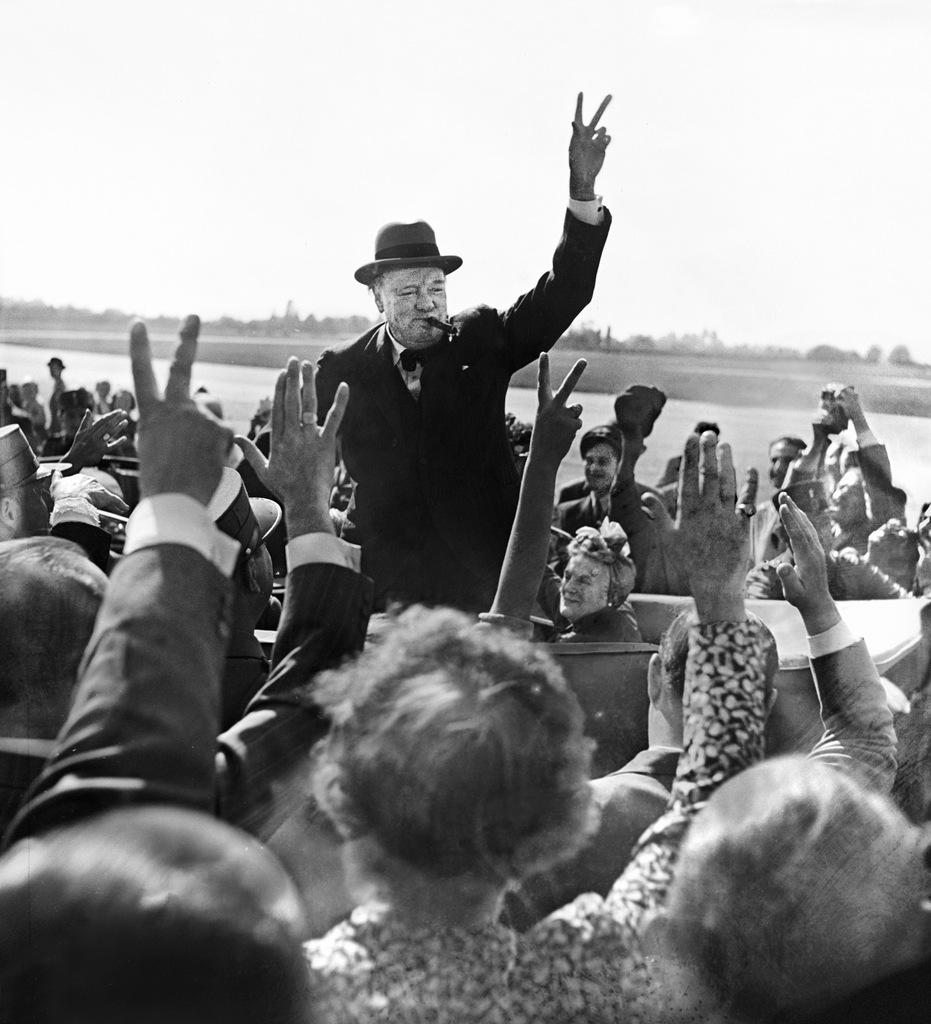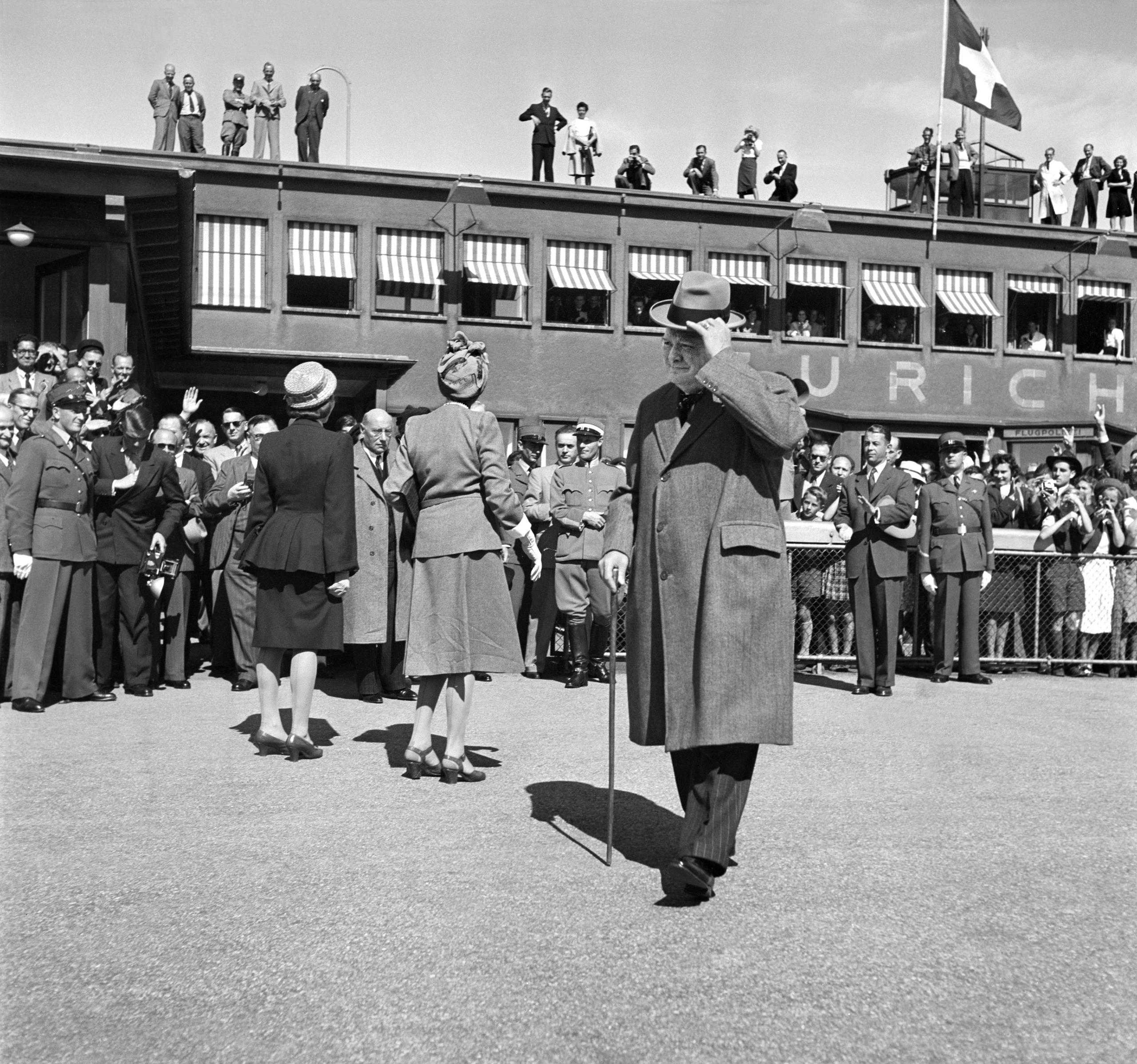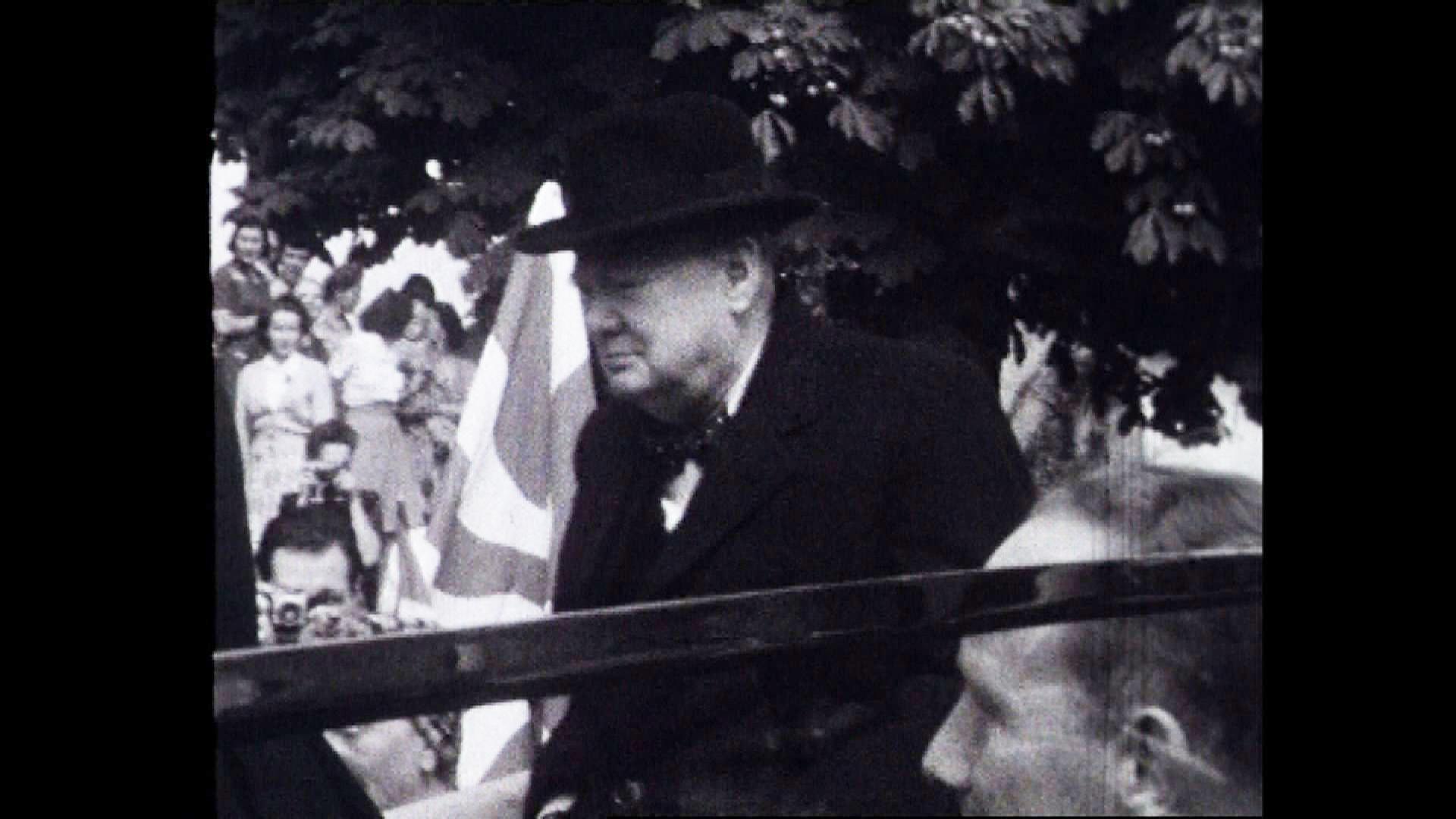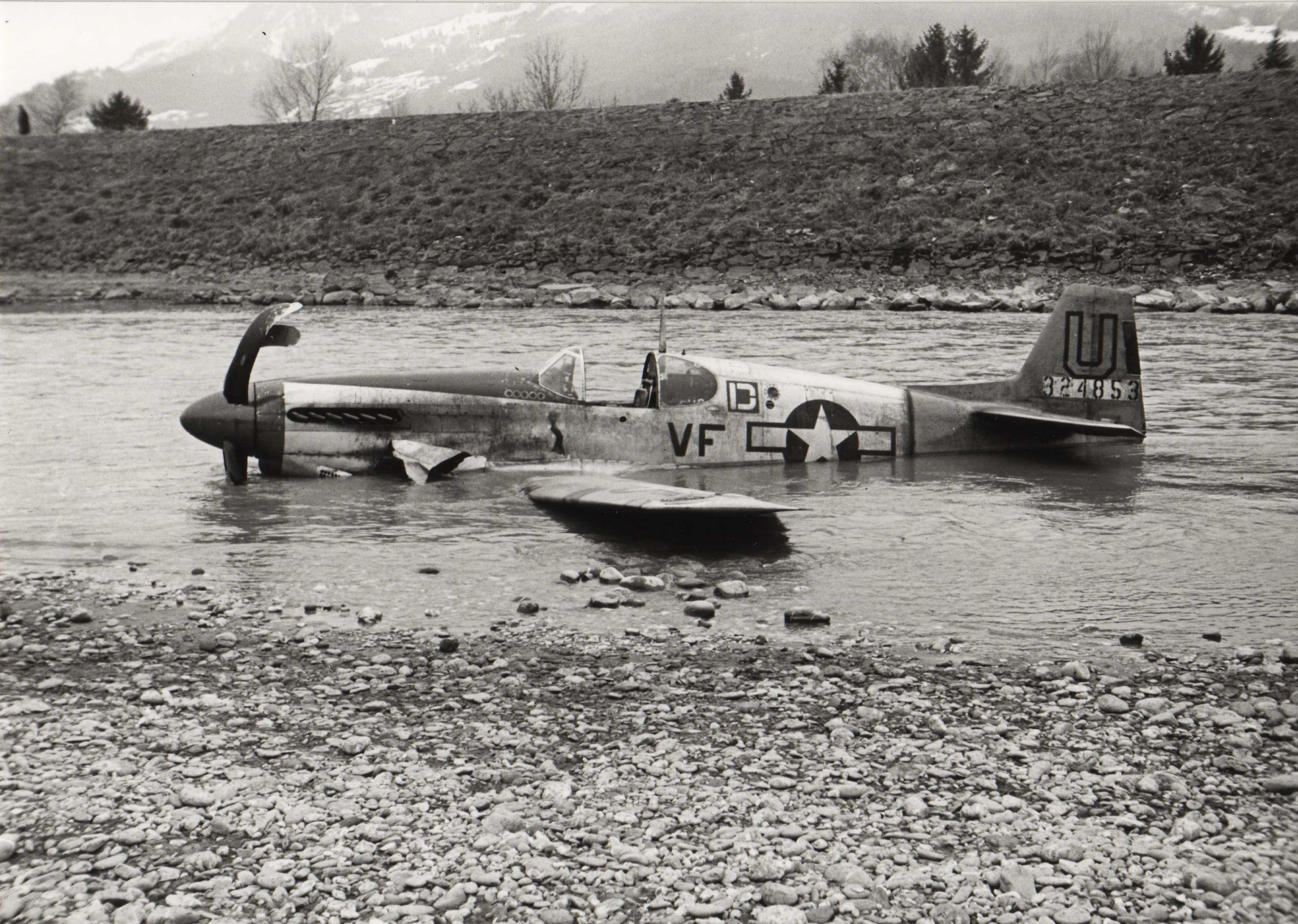When Churchill mixed Swiss business and pleasure

On September 19, 1946, Winston Churchill gave a historic speech in Zurich in which he called for a “United States of Europe”. Exactly 50 years after his death, swissinfo.ch goes behind the scenes of the speech and looks at what he thought of Switzerland – and what Switzerland thought of him.
Reading the telegrams archived online and collected in a dossier for this occasion by the Diplomatic Documents of Switzerland, one can’t help thinking of WikiLeaks: candid, confidential vignettes sent to the foreign ministry in Bern by ambassadors dotted around the world.
Diplomatic Documents of Switzerland
The Diplomatic Documents of Switzerland (DDS) is a Bern-based research project aiming to edit key documents on Swiss foreign relations.
“I dined the other day with Winston Churchill [who] attacked the alcohol on hand in a pretty bold manner, with the result that I have to consider the second half of the conversation null and void. He was saying words, but it was hard to make out their precise meaning.”
That was Carl Burckhardt, Swiss envoy to Paris, informing Swiss Foreign Minister Max Petitpierre about a dinner in the French capital with the former British Prime Minister in July 1946.
In an earlier telegram, sent in November 1945, four months after Churchill was voted out of office, Burckhardt painted another memorable dinner scene.
“‘I chopped down Nazism’, [Churchill] said, with the expression of a man announcing in the pub that he had just chopped down the large fir threatening the roof. He then added: ‘But you mustn’t forget that, all my life, I’ve been an implacable enemy of communism, and will fight it until the end of my days’.”
“He bit the end off a second cigar, expanded on the Russian threat as he saw it, and then explained what Switzerland needed to do. ‘You have a lot of money, and with this money you must strengthen, strengthen, strengthen your army, because this time you might have occasion to fight on the front line.’”

More
Churchill’s victorious visit to Switzerland
“This observation was followed by more praise for the work we had done with prisoners, before adding: ‘Your neutrality, I don’t know the history behind it but it served us jolly well from a strategic point of view. It is a necessity – or rather, it has been a necessity – because the next time, if we don’t succeed, no international law will help. The only thing we will know will be total war.’”
“All of a sudden, he turned to me and said point-blank: ‘I like your country very much. It’s the best on the continent. You did your job as well as if you were English. But while I like you, my friend Stalin detests you.’”
These sentiments were echoed in notes written to Petitpierre by Jacques-Albert Cuttat, chief of protocol in Bern who was closely involved in Churchill’s visit.
Referring to a meeting with Churchill on September 11, 1946, Cuttat wrote: “He said Stalin had proposed to him in 1944 invading Switzerland in order to be able to attack Germany from the southern side. Looking at me for some time, Mr Churchill told me he had replied drily to Stalin: ‘We, the English, don’t do things like that. We don’t invade a neutral country.’ I did not fail to reply that we in Switzerland did not know how much we were in his debt.”
Image boost
It was against this backdrop of Churchill’s loathing of communism and recent eviction from Downing Street that the idea was mooted among some Swiss “admirers” – notably the bigger companies – of inviting the statesman to Switzerland for an all-expenses-paid holiday.
Hans Bracher, a high-ranking army officer and central figure in ensuring the eventual visit ran without a hitch, reckoned these companies were “not operating solely philanthropically” but wanted to improve their reputations, which had suffered during the war, in Britain.
Negotiations continued smoothly, with Anton Bon, former manager of the Dorchester Hotel in London, acting as an intermediary. Here is one of the few English telegrams in the dossier, sent to Bon from Claus Vogel, a Zurich banker and spokesman for the consortium:
Burckhardt informed Petitpierre on July 27 that “Mr Churchill is very much looking forward to his stay in Switzerland. He told me he wanted to go swimming above all else. Given the choice between a villa on the shores of Lake Zug and the shores of Lake Geneva, he seems to express a preference for the latter, thinking the water in Lake Geneva will be warmer after August 22 than that of a mountain lake”.
In addition, “he would be happy to go to Bern, and very much wants to see a military pageant. I think General Guisan’s idea to accompany him through the fortifications is excellent”.
Burckhardt wrote that the universities of Zurich and Lausanne had been approached about the possibility of giving Churchill an honorary degree, but both had declined. He wrote that their man in Lausanne “recalled with reason the famous doctorate conferred by Lausanne on Mussolini, and he is of the opinion that the faculty would not obtain the necessary votes to proceed with such a proposition”.
Arrival
Doctorates aside, on August 23, 1946, Winston Churchill, aged 71 but as combative as ever, landed at Geneva Airport with wife Clementine and daughter Mary, staying at Villa Choisi at Bursinel, overlooking Lake Geneva, until September 16.
“No sooner had the aeroplane arrived than it became clear that Winston Churchill particularly liked keeping the police on their toes and didn’t like being restricted in his movements. Instead of going to a prepared freshening-up room in one of the hangars, Churchill – to the horror of the protection officers – veered straight towards the crowds of spectators,” Bracher wrote.

More
Winston Churchill visits Switzerland
Cuttat was struck by the aristocratic Churchill’s desire to greet workers and farmers. “When there were only one or two of them watching, he got out of his seat and gave them his [victory] sign. ‘It’s the workers whom I love the most’, he told me on two occasions. I see in that not only a need for popularity, but above all the awareness of being, faced with Stalin, the only personality capable of attracting vast crowds.”
Work and pleasure
Bracher provides fascinating insights into how Churchill filled his days in Choisi, when not meeting officials and crowds.
“In the mornings he was invisible, since he would dictate in bed until around 1pm. The word given out was that he was writing his memoirs. The facts, however, were that he was indeed dictating but not so much his memoirs than the Conservatives’ new political manifesto, countless wide-ranging letters to his friends around the world, and various speeches.”
“After lunch, which usually lasted until 2.30pm, he would sit at his easel and paint indefatigably until sunset. Supper – to which, on Mrs Churchill’s orders, the gentlemen were to attend in full dress, much to their chagrin – lasted until 9pm, followed by an hour of conversation and cards.”
He had already started working on his speech to be given at the University of Zurich on September 19, promising various officials that he would not say anything to embarrass Switzerland. “I know where I am speaking. Switzerland is not like America, where anyone can say whatever they want, with the result that words have less value,” Churchill said to Cuttat.
Nevertheless, not everyone was looking forward to the speech. Bracher wrote: “Two days before the visit to Zurich I got reports that the president of Zurich cantonal government had, with a deep sigh, told [Petitpierre] ‘if only Churchill could be prevented on health grounds from carrying out his visit to Zurich’. It appears that the otherwise well-disposed and well-meaning cantonal government had been put under pressure by the mostly leftwing city government.”
Cuttat also noted that on the morning of September 17, “Mr Churchill told me, visibly irritated, that the British consul-general in Zurich [Eric Grant Cable] had written him a letter advising him not to talk about politics in his speech in Zurich. ‘What else will I talk about if not politics?’ Churchill said. Mr Montag [London-based Swiss artist, friend of Churchill and intermediary for this trip] thinks Consul Cable will soon be transferred”.
Speech and reaction
The speech at the University of ZurichExternal link, made not long after a successful address to members of the public who had squeezed into Münsterhof, a square in the centre of Zurich’s old town, did not mention Russia by name.
Churchill did, however, talk about scanning “the dark horizons for the approach of some new peril, tyranny or terror”. Against this, he pointed to the existence of a “remedy” that, if taken, “would as by a miracle transform the whole scene and would in a few years make all Europe, or the greater part of it, as free and happy as Switzerland is today”.
The solution – “we must build a kind of United States of Europe” – went down far better in Switzerland than at home in Britain, especially when it was pointed out that Churchill might have plagiarised the core message.
“The speech given by Winston Churchill in Zurich has just caused a real stir in the Rheinland because it reflects the exact line of thinking of Dr Adenauer, leader of the [Christian Democratic Party] in the British zone and former mayor of Cologne,” wrote Franz Rudolph von Weiss, the Swiss consul in Cologne, in a telegram to Petitpierre on September 22.
“We are dealing not with a coincidence but rather the appropriation of Adenauer’s ideas by the former British Prime Minister.”
It turns out that three months previously, Von Weiss had sent a telegram reporting that Duncan Sandys, a politician and Churchill’s son-in-law, had had a long meeting with Adenauer in Cologne during which Adenauer – who would go on to become West Germany’s first post-war Chancellor – had put forward a partnership between France and Germany as a first step to “rebuilding the European family of nations and creating a sort of United States of Europe”.
‘Resounding jubilation’
Paul Ruegger, the Swiss ambassador to Britain, wrote to Petitpierre on September 24 expressing his surprise at the “lukewarm” reaction in London to Churchill’s speech.
He had noticed a “striking contrast between the behaviour of Londoners – who had been on the front line – and the unbounded and resounding jubilation of our country spared of war”.
One of the first – and most positive – reviews came from Max Petitpierre. In a telegram sent to Churchill at the Grand Hotel Dolder (now the Dolder Grand) at 8pm on September 19, he congratulated Churchill on his “profound and courageous” speech (read the original below).
“Like you, I am convinced that the health of Europe lies in the union of its people, not as a bloc but following the federalist formula of which my country has centuries-old experience. This enables each country to keep its own national personality and respect those of other countries. I wish that everyone, without exception, hears your stirring appeal so that Europe can finally know peace in freedom.”
“I thank you once again for your attachment to my country and for the pleasure you have given to the Swiss people by spending your holidays here.”
November 30, 1874: Winston Leonard Spencer-Churchill is born in Blenheim Palace, Oxfordshire.
May 10 1940-July 26 1945: Prime Minister as leader of the Conservative Party.
May 7, 1945: Germany surrenders.
July 5, 1945: British General Election (results declared on July 26). Churchill’s Conservatives unexpectedly lose to Clement Attlee’s Labour Party. Churchill becomes Leader of the Opposition.
September 19, 1946: Churchill makes “United States of Europe” speech at the University of Zurich.
October 26, 1951-April 6, 1955: Churchill becomes Prime Minister for the second time, 20 months after losing the 1950 general election.
March 25, 1957: Treaty of Rome is signed by Belgium, France, Italy, Luxembourg, the Netherlands and West Germany. This leads to the founding of the European Economic Community (EEC) on January 1, 1958.
1963: becomes first person to be proclaimed an Honorary Citizen of the United States.
January 24, 1965: dies in London, aged 90.
Churchill died on January 24, 1965 at the age of 90. His funeral was the largest state funeral in world history up to that point, with representatives from 112 nations. Only China did not send an emissary.
Switzerland was represented by Foreign Minister Friedrich Wahlen and Beat de Fischer, the Swiss ambassador to Britain.
In an internal note distributed among the cabinet, the foreign ministry said: “The death of this great statesman has provoked deep emotions around the world, where it has not been forgotten what the free nations owe to the former British leader who from 1940 to 1945 embodied the resistance of democracies faced with tyranny. Within Switzerland, radio, television and newspapers have echoed the feelings of intense gratitude of the entire Swiss population towards the deceased.”

In compliance with the JTI standards
More: SWI swissinfo.ch certified by the Journalism Trust Initiative











Join the conversation!